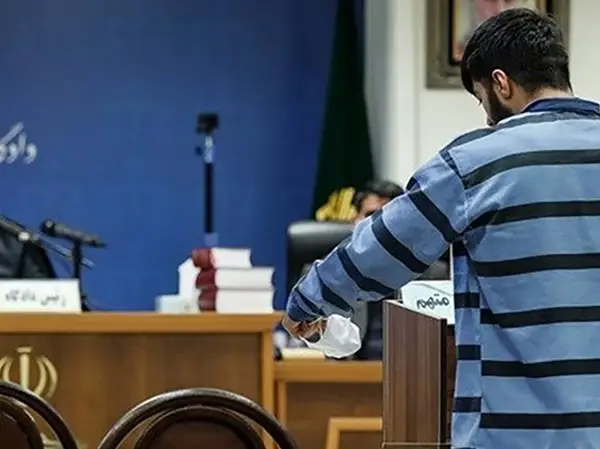As the Islamic Republic is adamant to execute more protesters, some Islamic law experts are voicing opposition to the Judiciary’s interpretation of Sharia.
Iranian Shia theologian Morteza Moghtadaei -- the deputy chairman of Society of Seminary Teachers of Qom told Iran’s Labour News Agency Sunday that the judicial system does not adhere to Islamic law, or sharia, regarding limitation to issuing death sentence.
Himself a former Revolution Court judge and head of Supreme Court of Iran, Moghtadaei said "In cases where a person does not fight with a group and only fights with one person, that person is not called a mohareb," referring to the charge of "moharebeh" that the Islamic Republic’s judiciary has issued for many protesters.
“Moharebeh” is an Islamic-Arabic term that in the lexicon of the Iranian regime means “fighting God” and its punishment is death.
The judiciary announced on Thursday the execution of Mohsen Shekari, a twenty-three-year-old protester convicted of injuring a security guard with a knife and closing off a street in the capital Tehran. He was charged with Moharebeh that along with another Islamic concept translated as “corruption on earth” are used as broad concepts by the regime to issue maximum sentences against opponents.
Clerical judges who take orders from the hardliner Judiciary convict people to death without a real trial, often with no defense lawyers and behind closed doors. The defendants have no way of challenging state evidence or introducing witnesses.
Moghtadaei elaborated that "If a mohareb kills someone, he should get the death sentence, but if he only threatens and intimidates, even if he is convicted, he should not get a death sentence; which means although he is a mohareb but should not be executed.”
Mohammad-Ali Ayazi, another Shia scholar and a seminary teacher, also said that everyone has the right to protest and can defend himself against government agents who want to prevent him. That is not committing ‘moharebeh’, he underlined.
He added that "In an important issue such as execution, it is important that an independent lawyer defends the accused and that a public hearing is held in the presence of a jury." If these principles are not respected, the cycle of violence will continue, Ayazi noted.
Prominent Iranian lawyer Nemat Ahmadi also criticized the judiciary for the prompt decision to issue death sentences for some of the detained protesters, saying that death sentences cannot be issued so haphazardly. He said that according to Article 279 of the Islamic Penal Code, a person is called a mohareb when he takes up a weapon against the people to cause insecurity by threatening others’ lives, property and honor. “Those who oppose the government are not recognized as mohareb,” he explained.
He added that many Islamic scholars believe the term should be used to describe bandits who endanger the security of the society, considering the historic context in which the term came into existence in the first place. It is very important to determine the use of the term with a lot of caution.
Mohammad-Hossein Saket, another lawyer and law researcher, said that “in general, it is not good to mix legal issues with political issues and make hasty decisions.”
In a speech after the execution of the first protester, President Ebrahim Raisi announced that "the trial and punishment of the protesters" will continue. Also, Ahmad Khatami, a hardliner cleric and Friday prayer Imam expressed his gratitude “for the decisiveness of the Judiciary, which sent the first rioter to the gallows.” Judiciary spokesman Masoud Setayeshi had announced Tuesday that five more people indicted in the killing of a Basij militia member, Rouhollah Ajamian, were sentenced to death.
Shekari’s hanging after a hasty and unfair trial has sparked deep anger among Iranians, who believe his killing was meant to instill fear among the people, and world leaders who describe the act as the acme of atrocity and a nadir of humanity.
Iran’s top Sunni religious leader has also slammed the executions of protesters as violations of Sharia law and warned the authorities that this will not stop the antigovernment movement.
Nationwide protests that erupted after the death of 22-year-old Kurdish Iranian woman Mahsa Amini on September 16 represent one of the biggest challenges to the Islamic Republic since its establishment in 1979. So far, around 500 civilians have been killed by security forces and at least 18,000 arrested. While many have been released, around 1,500 face criminal charges, and at least 80 detainees face the death sentence.
